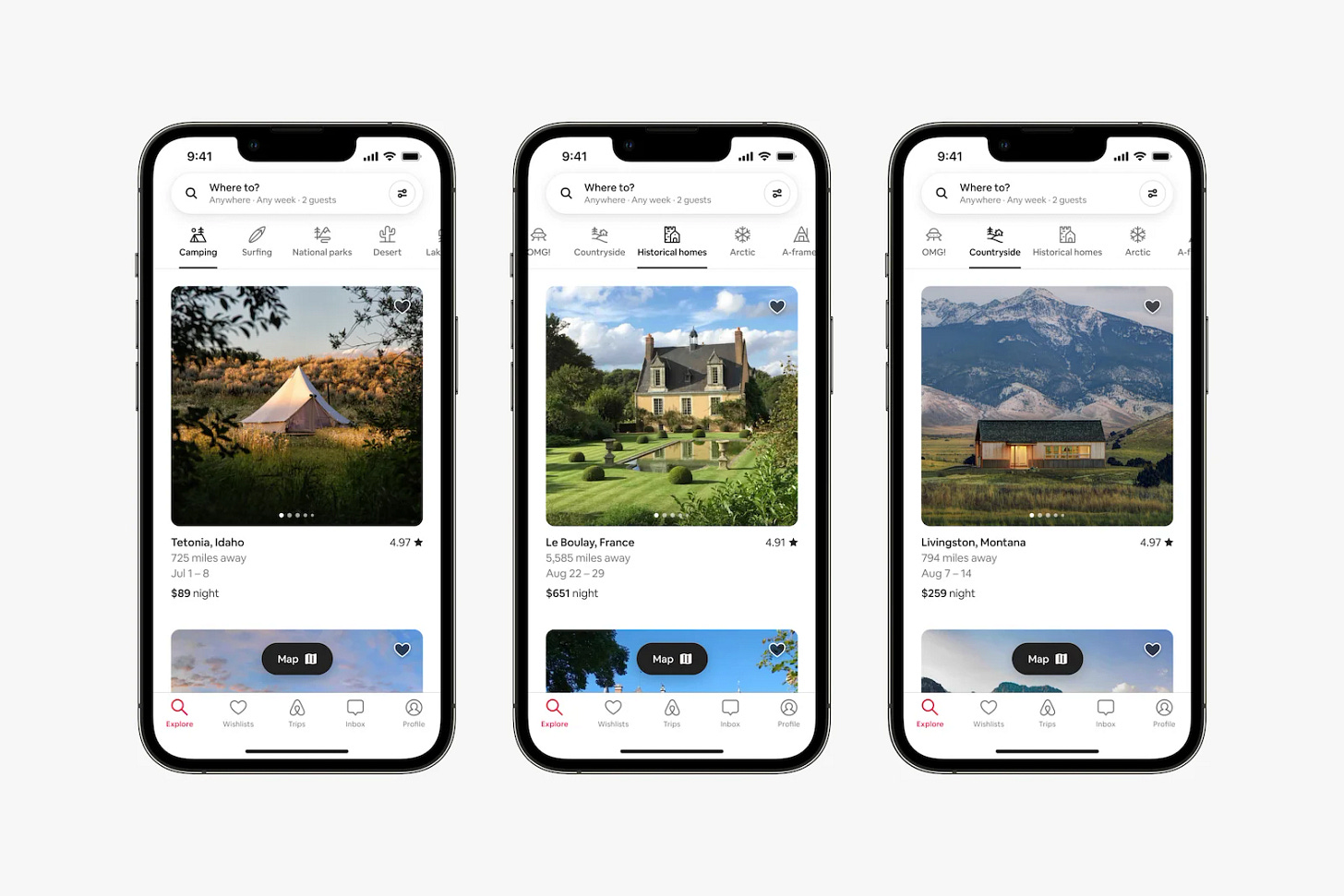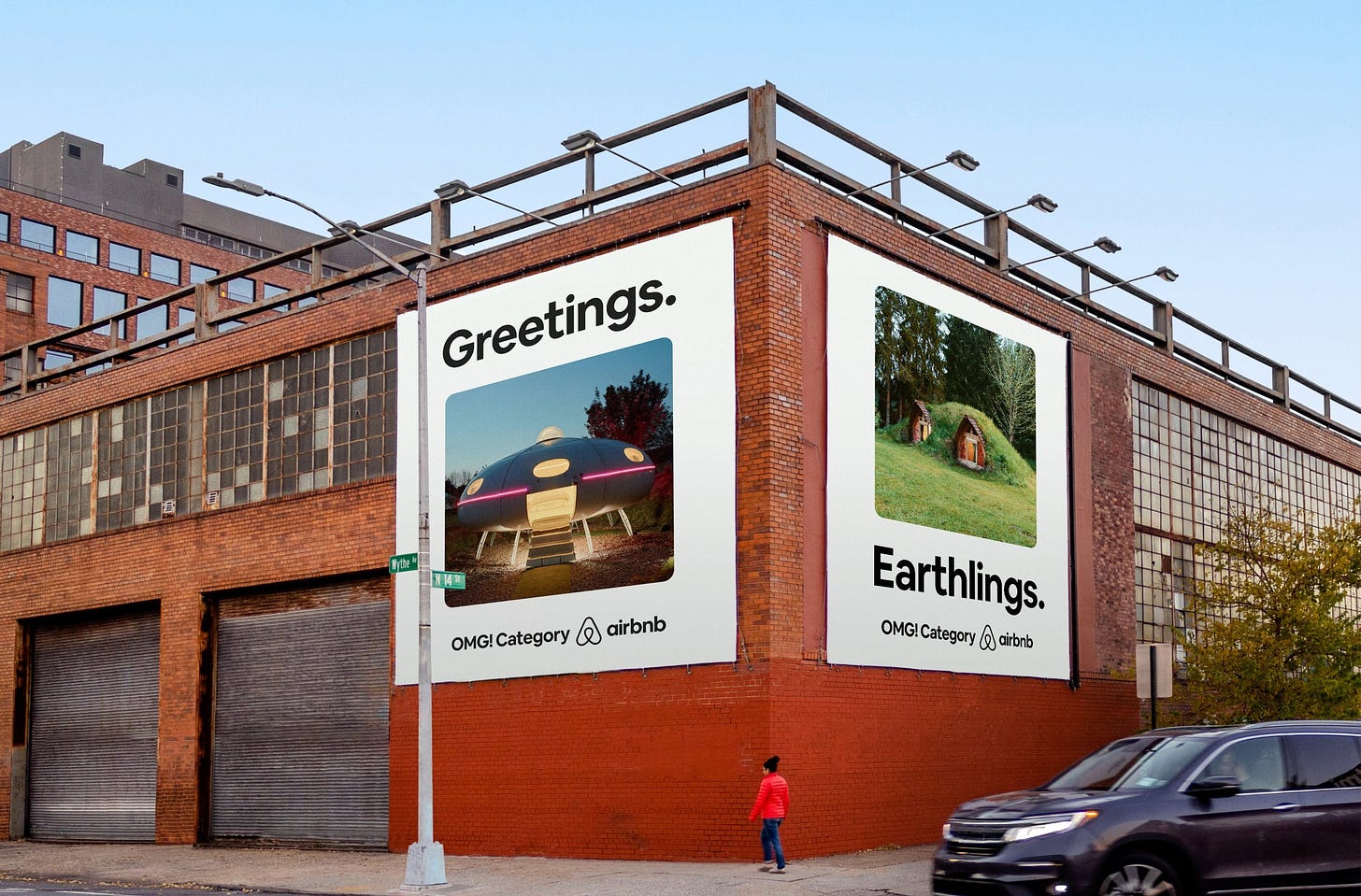The fastest growing startups are born from challenging how the world works.
No better example than the travel industry going after legacy hotel incumbents that haven’t evolved in decades.
Today I want to talk about what founders can learn from Airbnb & Vrbo’s contrasting approaches to marketing.
They come at challenging the status quo from different angles, yet both are interesting in their own ways.
Let’s start with our underdog, Vrbo.
Take a look at this 30 second spot.
They hold nothing back, surfacing top frustrations of staying at an Airbnb.
Let me summarize the top points for you.
(Trigger warning if you’re a frequent Airbnb guest.)
"When you stay at a Vrbo, the host doesn't stay with you."
"It looks exactly like the picture."
"Without privacy at your vacation home, it isn't really a vacation is it?"
"Only whole vacation homes."
"Always private."
Wowee shots fired.
If you come at the king, you better not miss.
That’s how you challenge Goliath.
What’s most interesting is how they plant a virus of doubt in the consumer’s mind.
Here’s the million dollar tactic: They make their most powerful point a question rather than a statement.
From: A statement
“Without privacy at your vacation home, it isn’t really a vacation.”
To: A question
"Without privacy at your vacation home, it isn't really a vacation is it?"
See the difference? A true masterclass in getting people to rethink their choices.
It almost feels like the second coming of the Apple vs. Microsoft rivalry.
Remember those hilarious Justin Long ads positioning Apple as the cool kids dunking on Microsoft’s boomer brand? Crazy effective.
Classic example of a challenger coming in hot to reframe a consumer’s perception of the market.
Now let’s move onto Airbnb, the heralded market leader.
Most market leaders fade over time because they stop innovating.
Not this company!
Airbnb continues to push the envelope by delivering on a very real aspiration, this time through “Categories.”
On the surface, “Categories” might not seem like much—a new discovery mechanism to search for different kinds of homes.
A new navigation, who cares right?
But when you go below the surface, you’ll notice they’re attempting to change human behavior—an incredibly ambitious feat.
Staying in a castle, tree house, or UFO (!) is the ultimate flex.
And they’re going all-in on this aspiration to change the way people travel.
From: We’re going to “this destination,” where should we stay?
To: Let’s stay at “this kind of place,” where should we go?
That’s bonkers for a startup, no less a company with everything to lose.
They’re building the ultimate moat.
And if they can somehow pull this off, the hotel industry can’t really compete.
An inspiring example of playing chess while the rest of the world plays checkers.
Differentiation at its finest.
To push this direction forward they are seeding this new type of behavior through TV spots that play right into this aspiration.
OOH too! I run by these billboards in Williamsburg all the time.
In my opinion, both of these campaigns are incredibly well done.
Marketing obviously isn’t one-size-fits-all, and there are different playbooks depending what you’re trying to achieve.
Vrbo does a great job of directly taking on Airbnb, seeding a virus of doubt to inspire consumers to rethink their choices through brilliant messaging.
And Airbnb continues to push their narrative through new innovation to change the way people travel.
Both are so effective because they hit on legitimate human truths that challenge existing beliefs.
If you’re thinking through your brand’s positioning, it’s important to think about what you’re challenging.
A long-held belief? An existing behavior? A direct competitor?
One of my favorite questions to ask clients, “If your brand were to have an enemy, who would it be and why?”
You need something to challenge—something people deeply care about.
Then it’s a matter of how you taken them on.
Because every brand is a challenger brand.
p.s. Thanks Tom for reading through a draft & offering your always valuable feedback!






